My childhood was a fragmentary time as I was part of the RAF system where families were (and probably still are) moved every 3 years as the dictates of father’s service demanded. Dad was clever at moving at an appropriate time for me – after 11 plus, just before GCE programmes, again just at the start of A levels – but this was still enormously disruptive for me. Not only was this disruptive of my education but child friendships became almost non-existence. The children around me would vanish as their fathers were posted on different timings, only once in 18 years was a fellow pupils’ parent posting paralleled with mine, and he remains a long-standing friend of 60 years.
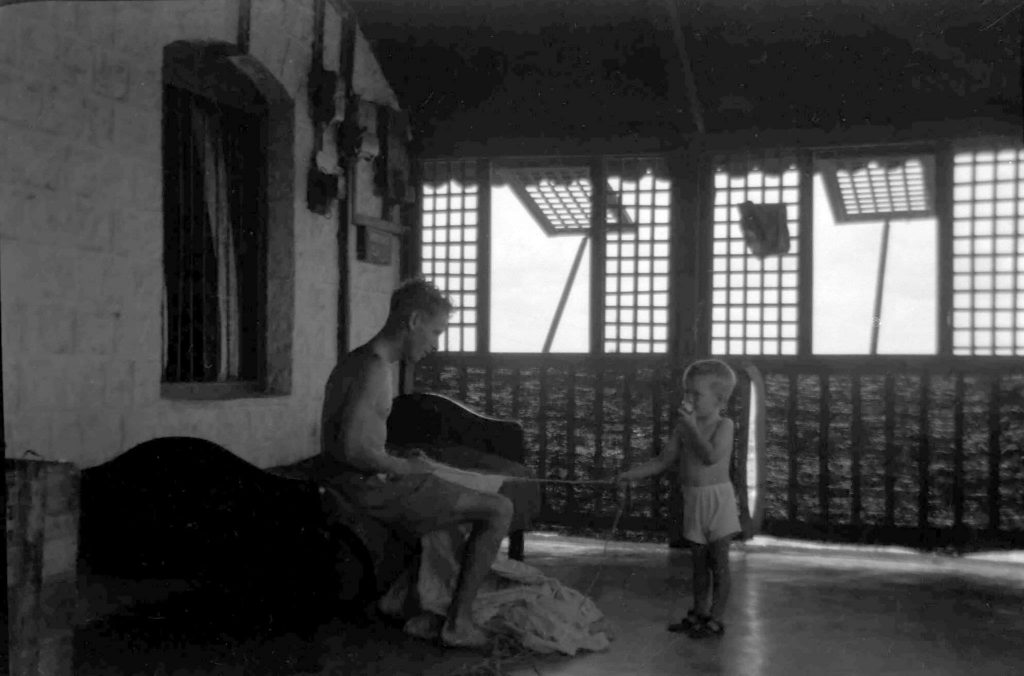
Aden: Helping dad sort out his sails after winning a yacht race in 1949. I still have the engraved RAF Sailing Club cup he won – a beer tankard of course
In other ways too my life was ‘interesting’ as a service brat. When my father reached the end of his war time service, he was a Warrant Officer air gunner. He was remustered back to his pre-war rank as a corporal and his pre-war trade as a male nurse. I was born in the shadow of Aylesbury nick in the winter of 1947, my crib the bottom drawer of a chest of drawers in a rented room. My earliest memory is of vomiting on my mother from the top bunk in our cabin on a troopship going to Aden (South Yemen, then a British protectorate) – as a memory probably reinforced on numerous occasions by family recitation.
My dad was an avid photographer with his Kodak Box Brownie, and some of the photos survive of our time in the territory, during which my sister was born. The black and white photos of course colour my memories – as do family stories handed down. My mother was fond of telling the tale of my dad and the rat. It appears that one morning she saw a cereal packet move on the cupboard shelf. My dad took it into the quarters lobby, in just his pyjama bottoms, and closed all the doors. He was an Air Force hockey player so hit the box with his hockey stick. At which point a rat jumped out. Apparently, dad chased it around the hall swiping at it with his hockey stick before it sought refuge by diving down the front of his pyjama trousers. It did no damage, apparently, as three years later my mum gave birth to my brother.
I remember enforced afternoon snoozes in the services infant school in cots in the hall during the afternoon heat. The next step was a posting back to England to the RAF Hospital at Colliton Cross in Devon, school the junior school in nearby village of Newton Ferrers, almost home ground for mum who was born in nearby Churston Ferrers. Our housing was a wooden hut, one end of four and from which reputedly the sticks could be heard crackling in the grate of the hut the other end of the terrace. It wasn’t long before we were allocated a newly built married quarter with a view across fields and woods.
I think I enjoyed my first proper school, but it wasn’t long before we were on the move again, this time to Wroughton in Wiltshire. Here I was a wild child, disappearing to a den in the woods, making a bow and arrows and enjoying childhood outdoors in the woods and fields. The walk to the school in the village from the camp was a fair way but it was during this walk that I developed my love of countryside and wildlife. I also underwent a serious stomach operation, the first of what has become many encounters with the surgeon’s knife. When my brother was born my mother obviously had a difficult time and I was sent away for 6 months to live with grandma, attending junior school in Bicester in Oxfordshire. Here I was teased as having a mother who didn’t want me, but this stopped after the 6year old me was pulled off beating up another boy by a policewoman who frog marched to grandmas for punishment. It was here I developed a love of books and drawing and a tolerance of being solitary.
Three years in Wroughton ending with passing the 11 plus, helped by a wonderful teacher who gave up her Saturday mornings to school me to make up for the lost time on the operating table and hospital ward. I don’t recommend listening to the Goon Show with eight stitches in a stomach wound – a hilariously painful experience. Where, I wonder, are my first ‘girlfriend’ Clare Walcroft, or my fellow wildlife enthusiast Jeremy who had a wonderful damson tree in his back garden and a microscope as a window into another world?
Next was my father being posted to RAF Chessington. Chessington meant Dorking Grammar School, where I knew nobody and where my art skills started to become more evident as I retreated into the art room. No married quarters this time but a rented ‘civvy’ house in Leatherhead. Here I encountered how ‘civvy’ middle class kids lived – a car, large house, a baffling world after married quarters, and remarkably they didn’t disappear from the neighbourhood but were ‘always’ there. At eleven and twelve these kids had established circles of friendships from school and the neighbourhood that I was not a part of. A skill service brats acquire is to rapidly develop the local accent…
The school remained the same when dad was posted after a short period to Headly Court. By this time, he was a chief tech sergeant physiotherapist. The joys of civvy living had lasted just about a year, and Headley married quarters again offered the woods and bridle paths to explore, but also the same fractured social surroundings as the magic vanishing act postings produced amongst other families had kids appearing and disappearing from my life like rabbits from a hat, worse than a Harry Potter movie.. The RAF was promoting my father, and he was offered the opportunity to become commissioned as an officer, much to my mum’s horror as it would mean moving again, and into officers married quarters with all the class war this held out for her.
Promotion meant, yes you guessed it, posting, this time as adjutant to the opening of a new RAF hospital in Akrotiri, Cyprus. This time not even a civvy school but a Forces school. Teachers on short term contracts with classes full of kids who would be there for a while and disappear so there were always new kids appearing who had followed different curricula, as well as bloody minded individuals like me who took advantage of the move to refuse to fit neatly into the system, managing to spend most of my time in the art room again.
Married quarter was an asbestos panelled hut in an area of Limassol, now empty and still to be demolished as removing white asbestos is hazardous and a specialist skill. Hazards not known perhaps when the RAF chose to use it as a building system for housing its personnel. We children were bussed to school in the Episcopi cantonment. Just after Cyprus gained independence the buses still had wire security grilles over the windows from the defensive measures against EOKA terrorists, and I remember being stoned in the street for being the British enemy.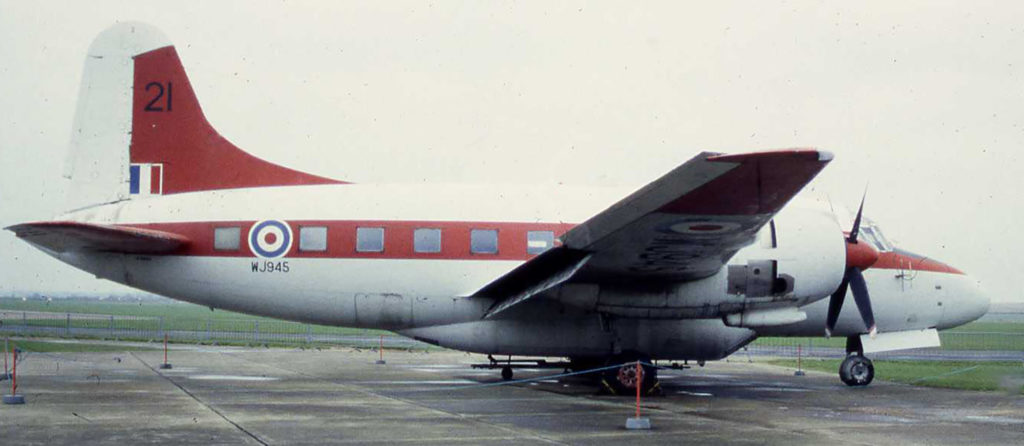 Vickers Valetta
Vickers Valetta
The art teacher encouraged my art skills, and I kept winning the annual school art prize so much so that third time around I was told to accept the woodwork prize instead – a joke really as I was a poor craftsman. Another skill developed was technical drawing and the TD teacher, me and two other boys were the founding members of No. 1(Overseas) Squadron of the Air Training Corps. The RAF of course then spoiled us. We learned to shoot with Lee Enfield service rifles, even the Bren machine gun. We were flown to Malta for annual camp (you could see the sea passing 6,000 feet below through the holes made by the missing rivets in the Hastings fuselage) and flown round the island in a Shackleton. Taken on a trip to Libya and Tunisia in the AOC Middle East’s own Valetta and taken through the decompression chamber for jet flying. My dad watched, laughing through a porthole as the doctor in the chamber turned off my oxygen to demonstrate to the others what happened as anoxia set in at a simulated 18,000 feet. Ah, I hear you say, that explains your sense of humour.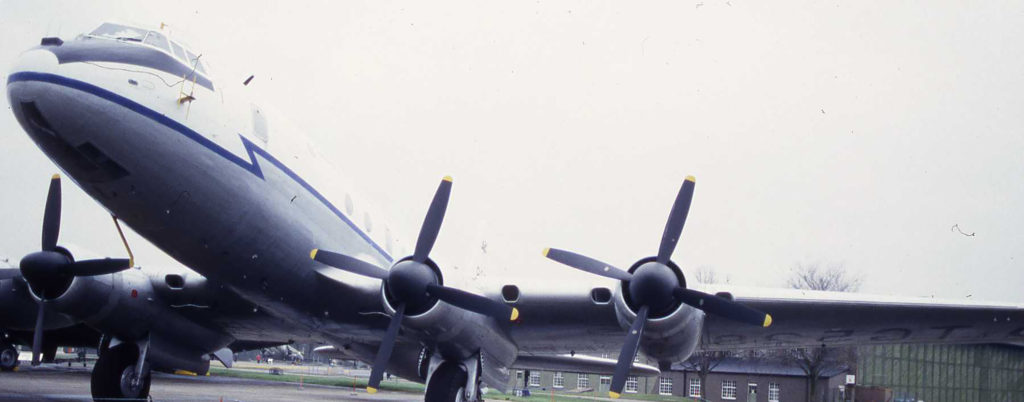 Hastings
Hastings
Posted back to married quarters in Cosford, I had passed the entrance exams to become an RAF apprentice and follow in the old man’s footsteps, but then to my shock I failed the medical. Spent three years in Wellington grammar sixth form, unwanted by teachers who had groomed the other sixth formers for university entrance but had no idea what to do with this service brat foisted on them. I went on to discover a strange truth, that for many service kids like me, square pegs who refused to fit into the system, there existed institutions ably fitted to deal with us. Art Colleges, islands of rebellion in a conformist world, where a high proportion of entrants seemed to come from a Service background. Small local colleges, like Stafford College of Art opened their arms and welcomed us in. Alas they are no longer there, absorbed into the academic snobbery of the degree colleges, which provide no room for those whose previous academic life has been, as mine was, disrupted and dislocate to their disadvantage.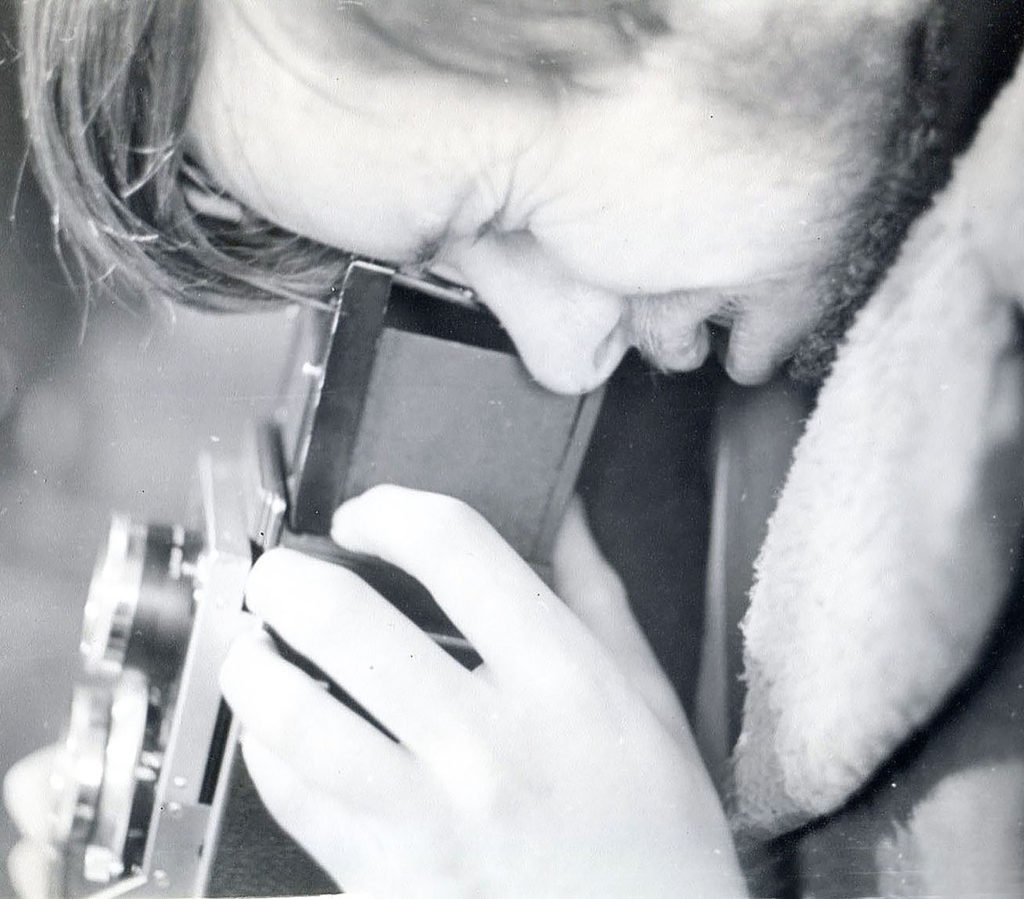 Art College 1967
Art College 1967
Where I wonder do service kids go today? I read that for example in the Royal Navy now most people own houses ‘off base’ giving their children stability but perhaps at the expense of the absence of a parent. Do service brats still suffer the dislocation of their parents postings? Is the struggle to retain trained manpower in the services still being exacerbated by poor service housing – the press reports seem to suggest so. Do the children of service families in the RAF and Army still face the choice of staying with the family or being sent to boarding school?
Politicians talk of a ‘Services Covenant’ which they notably fail to keep, failing to provide properly for wounded veterans, prosecuting soldiers for following orders many years after the event, such as the chasing of 72 years olds for offences committed in counter-terrorist operations. If the covenant is breached so easily with the service veterans themselves, it would seem there is likely to be scant attention to the needs of their families.
For me things turned out well, although I still feel an outsider in many ways. My brother and sister have likewise prospered. I know my experience will not be like those born later into the golden years of the 20th Century, or to parents whose service life was less peaceful than my fathers. Only in one year since 1720’s has a British serviceman not been killed in action somewhere in the world. That year was the year I started art college, 1966.
On his death bed, my father turned to me and smiled. “If you had been in the RAF” he said, “you’d have been a group captain by now”. It was quite the nicest way to show his approbation and say goodbye.
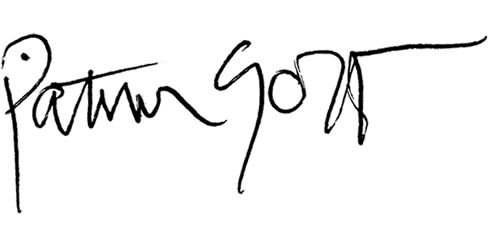
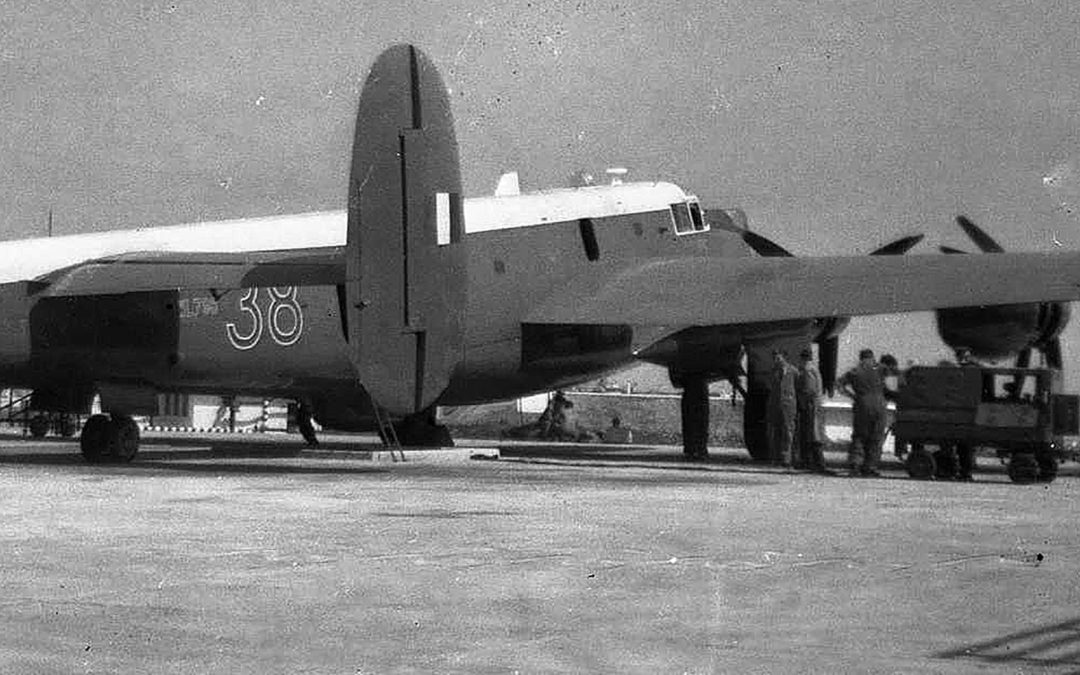
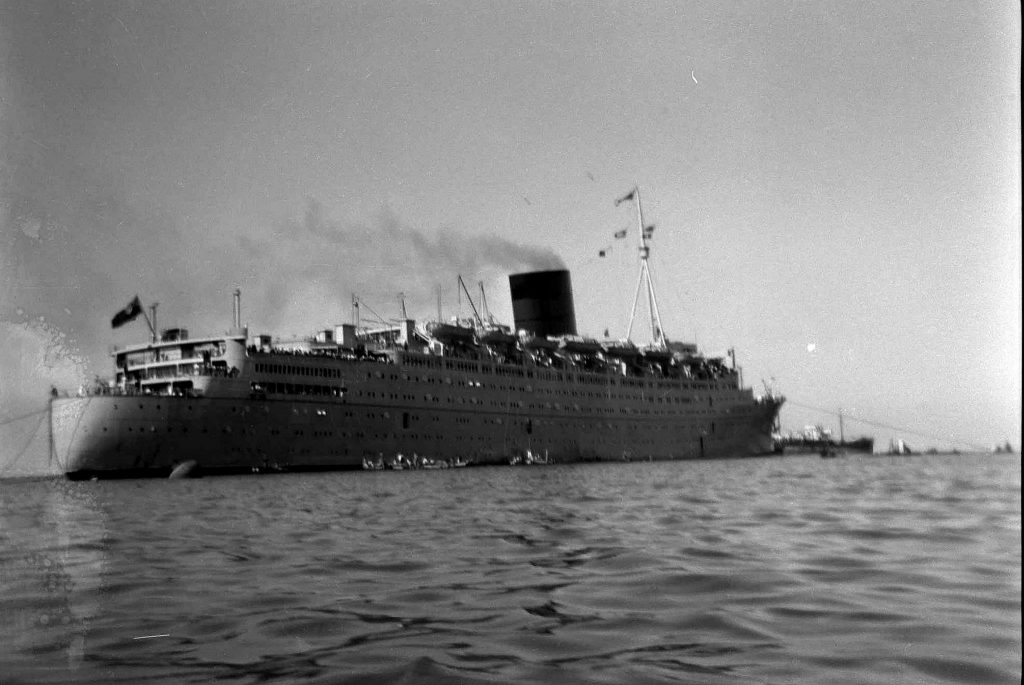
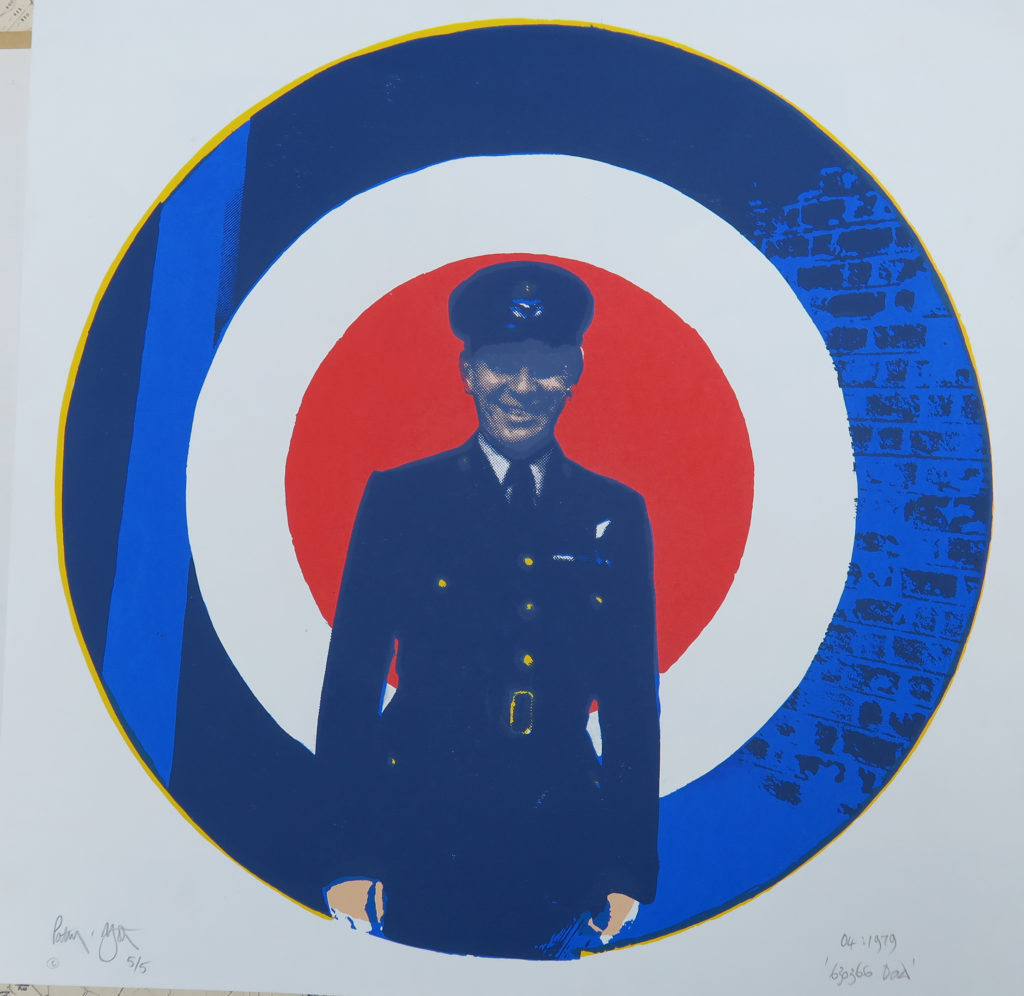
Recent Comments